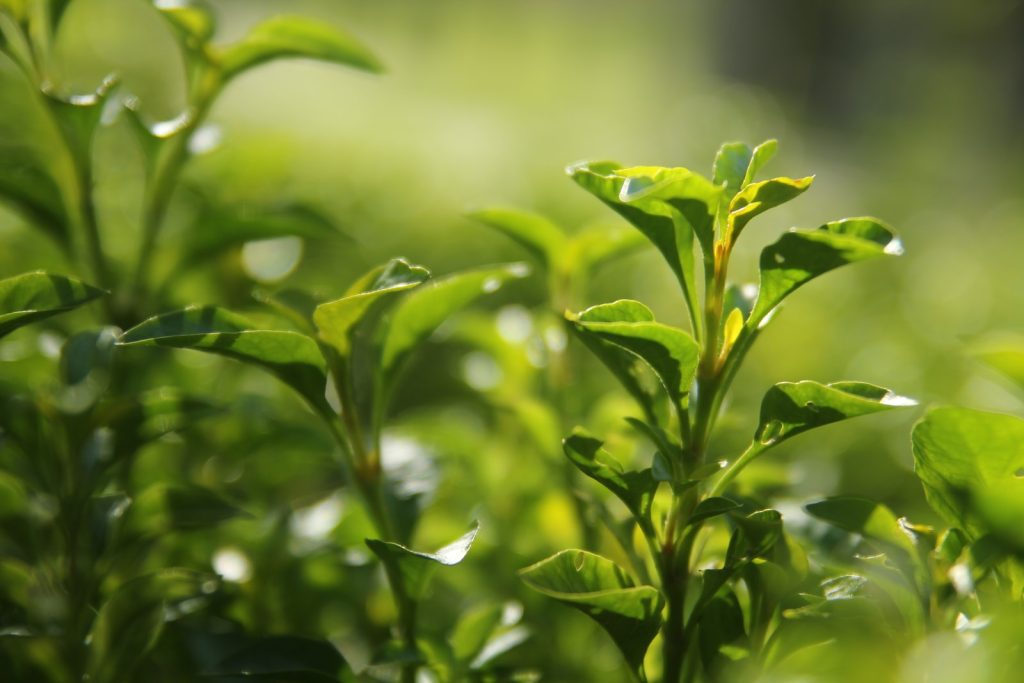Table of Contents
- Organic Farming in the Tea Industry
- Fair Trade Certifications for Tea Farmers
- Ethical Sourcing of Tea
- Environmental Impact of Tea Production
- Ensuring the Longevity of the Tea Industry through Sustainability Practices
- Frequently Asked Questions
- Conclusion
Are you a tea lover who is passionate about sustainability? If so, you may be interested in the challenges and practices within the tea industry that aim to promote sustainability.
From organic farming and fair trade certifications to ethical sourcing and environmental impact reduction, there are various efforts being made to ensure that the tea industry operates sustainably.
Organic farming is one such practice that has gained popularity in recent years. Organic teas are grown without synthetic pesticides or fertilizers, which not only benefits the environment but also promotes healthier soil and water quality.
In addition, fair trade certifications guarantee that farmers receive fair prices for their products and work under safe conditions. Ethical sourcing of tea ensures that workers’ rights are protected and local communities benefit from production activities.
By exploring these initiatives, we can gain a better understanding of how sustainability practices contribute to a healthy and thriving tea industry.
Organic Farming in the Tea Industry
Let’s delve into the world of organic tea farming and explore how farmers are working towards a more environmentally friendly approach.
Organic farming is becoming increasingly popular in the tea industry due to its numerous benefits. It promotes soil health by avoiding harmful chemicals that can damage the ecosystem. It preserves biodiversity by allowing natural pollinators to thrive alongside tea plants. Additionally, organic farming produces healthier tea leaves as they are free from toxic residues.

However, small-scale tea farmers often face challenges when implementing sustainable and organic practices due to lack of resources and knowledge on these methods. They may also face difficulty competing with larger, non-organic operations.
To address these challenges, organizations like Fairtrade International offer support and certifications for fair trade and organic practices in the tea industry. By supporting small-scale organic farmers through fair trade programs, consumers can help promote sustainability within the industry while also enjoying a healthier cup of tea.
Fair Trade Certifications for Tea Farmers
You’ll learn how tea farmers can get Fair Trade certifications, which helps them earn better wages and work in safe conditions. Fair trade is a movement that advocates for better working conditions and higher wages for workers in developing countries.
When a tea farmer has a fair trade certification, it means that they follow certain standards of ethical production and labor practices. One of the biggest benefits of fair trade certifications for tea farmers is the opportunity to receive higher wages. Since many tea farmers come from low-income backgrounds, this extra income can make a big difference in their lives.
Additionally, fair trade organizations often provide education and training to help farmers improve their agricultural practices, which means they can produce higher quality teas that command better prices on the market. On the consumer side, purchasing fair trade certified teas means supporting sustainable agriculture practices and ethical labor standards while enjoying high-quality products.
Ethical Sourcing of Tea
As a conscious consumer, it’s important to know where the products you buy come from and how they are sourced. That’s why ethical sourcing of goods like tea is becoming increasingly popular.
Ethical sourcing involves ensuring that the tea is produced in a way that respects both the environment and the workers involved in its production. This means taking into account factors such as fair wages, safe working conditions, and sustainable farming practices.
However, ethical sourcing challenges can arise due to the complexity of supply chains within the tea industry. For example, some tea may be sourced from multiple suppliers or grown on small farms with limited resources for certification.
Additionally, there are social responsibility implications for companies who choose not to prioritize ethical sourcing practices. By supporting unsustainable or unethical practices in their supply chain, these companies risk damaging their reputation and losing customers who value transparency and accountability in their purchasing decisions.
Environmental Impact of Tea Production
It’s crucial to consider the damage caused by our purchasing decisions, and the devastating effects on our planet that come with it.
Tea production is no exception when it comes to environmental impact. Large-scale tea production requires a lot of water usage, which contributes to water scarcity in areas where it is already limited. Additionally, tea production emits carbon emissions from transportation and energy usage during processing.
To address these issues, some tea producers have implemented sustainable practices such as using rainwater for irrigation or investing in renewable energy sources. Organic farming methods can also reduce water usage and carbon emissions by eliminating the use of synthetic fertilizers and pesticides.
Consumers can also make a difference by choosing brands that prioritize sustainability in their sourcing and manufacturing processes. By supporting eco-friendly tea companies, we can help reduce the environmental impact of tea production and protect our planet for future generations.
Ensuring the Longevity of the Tea Industry through Sustainability Practices
You can make a difference in preserving the future of your favorite beverage by supporting companies that prioritize sustainable methods and responsible sourcing. As consumers, we have the power to demand transparency from tea companies about their environmental practices and hold them accountable for reducing their carbon footprint.
Some companies are already taking steps towards sustainability by using sustainable packaging options such as biodegradable tea bags or reusable tins.
Another important aspect of sustainability in the tea industry is community engagement. Supporting companies that work with local farmers and communities helps ensure fair wages for workers and promotes social responsibility.
By choosing ethically sourced teas, you can contribute to building a more sustainable supply chain that benefits both people and planet.
Next time you brew a cup of tea, consider how your choices can impact the longevity of the industry and make a conscious decision to support companies that prioritize sustainability practices.
Frequently Asked Questions
When it comes to sustainability vs profit, the tea industry faces a tough decision. It’s easy to prioritize profit over ethical priorities like reducing environmental impact and ensuring fair wages for workers.
However, many companies are now realizing that prioritizing sustainability isn’t just the right thing to do – it can also be good for business in the long run. By investing in organic farming practices, fair trade certifications, and ethical sourcing, tea companies can build a loyal customer base who value these values as much as they do.
Ultimately, prioritizing sustainability is an investment in both the environment and the future success of the tea industry.
Sustainable farming is a challenge faced by small-scale tea farmers who wish to implement sustainable practices. Economic viability is often a major obstacle, as initial investments in equipment and training can be costly.
Additionally, the lack of access to markets that prioritize sustainability can make it difficult for small-scale tea farmers to sell their products at fair prices. However, there are organizations and programs that aim to support these farmers in implementing sustainable practices and accessing markets that appreciate sustainability.
By prioritizing economic viability alongside sustainability, small-scale tea farmers can create long-term benefits for both their communities and the environment.
How does the tea industry ensure that workers are treated fairly and paid a living wage?
Fair trade certifications are one way that the tea industry ensures workers are treated fairly and paid a living wage. These certifications require companies to adhere to strict labor standards, including fair wages, safe working conditions, and the right to unionize.
Worker empowerment programs have been implemented in some tea-producing regions to give workers a voice in decision-making processes and improve their overall well-being.
While there is still progress to be made in ensuring all tea workers are treated fairly, these initiatives demonstrate a commitment to improving labor practices within the industry.
What is the carbon footprint of the tea industry and what measures are being taken to reduce it?
Reducing the carbon footprint of the tea industry is a pressing concern, and many measures are being taken to address it.
Sustainable packaging has become increasingly popular as a way to reduce waste and emissions.
Companies are also investing in renewable energy sources, such as solar and wind power, to reduce their reliance on fossil fuels.
Additionally, some companies are exploring new production methods that use less water and energy.
There is still much work to be done, but with continued effort and innovation, the tea industry can make great strides towards sustainability.
How does the tea industry address water usage and conservation in tea production?
When it comes to water usage and conservation in tea production, the industry has begun implementing sustainable irrigation practices and better water management. This is necessary because the amount of water required for tea cultivation can be significant, especially in areas where water resources are limited.
Sustainable irrigation methods like drip irrigation and rainwater harvesting have been introduced to reduce the amount of water used while maintaining crop yields. Additionally, some tea producers have implemented measures such as monitoring soil moisture levels, using drought-resistant crops, and reducing runoff from fields.
By adopting these practices, the tea industry is taking steps towards a more sustainable future while minimizing its impact on already scarce resources like water.
Conclusion
Congratulations! You’ve just discovered the sustainability challenges and practices within the tea industry.
From organic farming to fair trade certifications, ethical sourcing, and environmental impact, the tea industry is taking steps towards preserving its longevity.
Organic farming ensures that tea farmers use natural methods to grow their crops without harming the environment. Fair trade certifications guarantee that farmers receive equitable payment for their hard work. Ethical sourcing promotes transparency in the supply chain from farm to cup. And lastly, reducing environmental impact helps preserve natural resources for future generations.
By supporting sustainable practices in the tea industry, you’re not only enjoying a great cup of tea but also contributing to a better tomorrow.
So next time you sip your favorite brew, remember that every small step counts towards a more sustainable future for everyone involved in bringing it to your cup.
Keep exploring and discovering ways to support sustainable practices in all industries!
